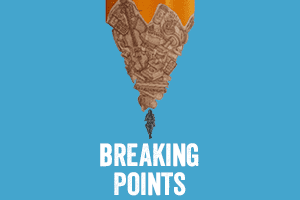This article is part of a series on navigating teens stress and anxiety, a common reason for substance use. Find the full series at Stress & Drug Use: What Every Parent Should Know.
Parents: You have much more influence over your sons and daughters than you think. Even if your teens are trying their best to make you feel unimportant, don’t underestimate how much you can really impact them.
Modeling healthy coping skills
Sixty-one percent of teens say stress and anxiety have a large impact on their lives. How we, as parents, handle stress and life’s pressures can be reflected in our children’s behavior as well. What you do and say guides your child’s behavior, attitudes and beliefs over the long term. That’s why it’s important to model the behavior you want to see in your kids.
Here are a few concrete examples of how our behavior can make an impact on our stressed-out teens and young adults:
- When parents are stressed, kids feel it — even if they don’t show it. Acknowledge what you’re going through and talk about how you’re handling it.
- Be aware when you automatically go to a substance to deal with a problem, whether that’s alcohol, nicotine or even aspirin.
- When you pour a glass of wine or beer for yourself, be mindful not to say, ‘I had a really bad day’ at the same time, as this makes a connection of using a substance to manage stress or feel better.
- Instead, pair your anxiety/stress with healthy coping strategies — and explain it out loud. Instead of saying: ‘I’m so stressed out today, I really need a drink,’ you can say ‘I had a really stressful day, so I think I’m going to go take a nice quiet walk to decompress.’ Or ‘I’m so stressed out today, I’m going to go for a run.’
- Practicing mindfulness and meditation can be really helpful. And you can even say, ‘Who wants to meditate with me?’ Even if it sounds forced or goofy, it works — your kids are paying attention.
Keep in mind
- Teens can and do notice when you don’t practice what you preach. If your teen points out contradictions in your behavior (which they love to do), take responsibility and talking about how you can correct your slip-ups.
- You should choose times and settings to model these behaviors that will increase the likelihood of your teenager paying attention and being receptive to them.
- Positive modeling can be challenging, and does not automatically guarantee that your teen will follow the behavior you demonstrate — but it definitely improves the odds. They’ll internalize it and hopefully act on it, whether now or down the road.

Bring BREAKING POINTS to Your Community
Host a screening of BREAKING POINTS, a documentary film that takes on the issue of study drugs and how they intersect with school stress. The package includes a Screening Guide with discussion questions and other bonus materials.
Key takeaways
- Narrate what you’re doing — and why you’re doing it — when you’re performing behavior you’d like them to mimic or adopt.
- Continue modeling good behavior, even if your child pushes back or seems indifferent to your actions.
- Own your bad behavior and reflect on it — out loud in front of your kids. This is also modeling and helps them learn from your mistakes, too. It helps to show that failing and trying again builds coping skills, grit and resilience.
- Praise your teens when you notice them demonstrating healthy coping skills on their own. Reinforcing positive behavior makes your teen feel proud, and goes far to assure the behavior continues.
 Get Support
Get Support
